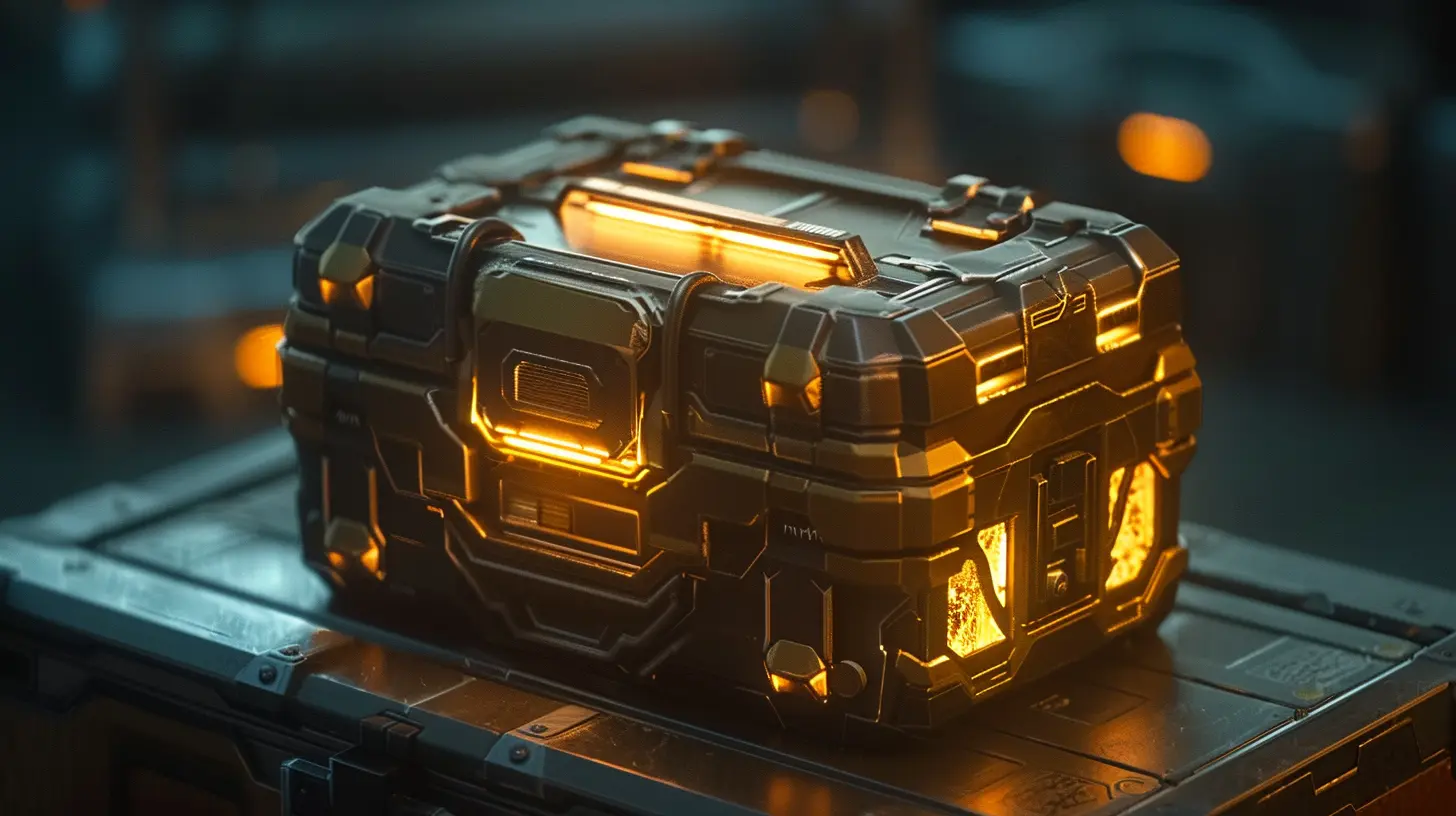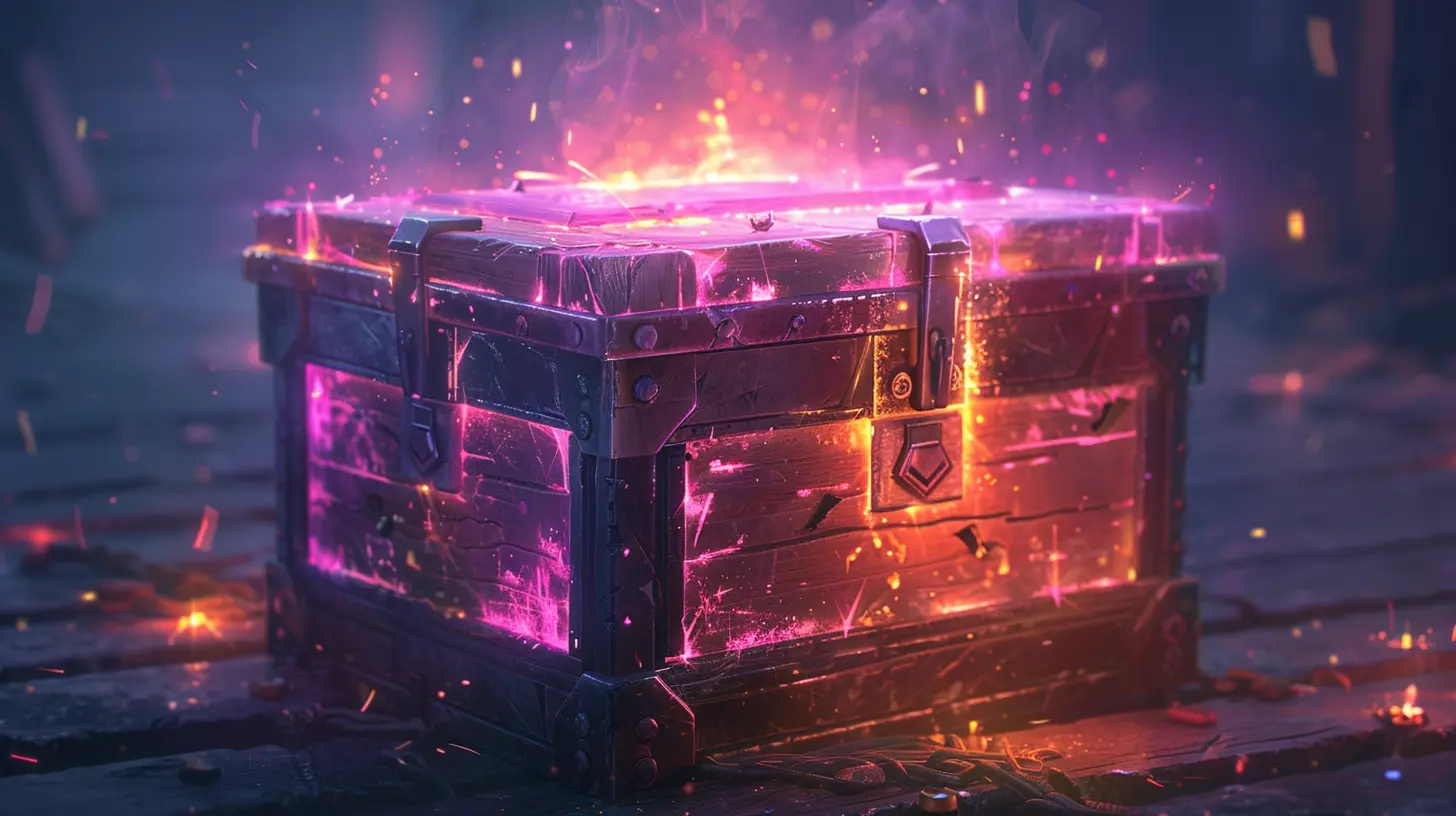22 April 2025
Gaming has come a long way since the days of 8-bit pixels and side-scrolling adventures. Today, gaming isn’t just a pastime; it’s a culture, a billion-dollar industry, and for some, an obsession. But as the gaming industry has grown, so has the controversy surrounding it. One hot-button topic that gamers can’t seem to stop debating is loot boxes. Are they a blessing that spices up gaming, or are they just flashy ways to empty our wallets? Let’s crack this open and dive deep into the world of loot boxes.
What Are Loot Boxes?
Before we start pointing fingers, let’s make sure we’re all on the same page. A loot box is like a mystery bag in a game. You pay real money (or sometimes in-game currency) to buy one, and inside, you’ll find random items—think rare skins, weapons, or upgrades. Most of the time, the content is purely cosmetic, but in some games, these items can affect gameplay.Sounds fun, right? Who doesn’t love the thrill of cracking open a treasure chest to see what’s inside? But here’s the kicker: you have no idea what you’re going to get. It could be a super rare item that makes your friends jealous, or it could be something useless that you’ll never use. It’s like scratching a lottery ticket—you’re playing with chance.
The Charm of Loot Boxes: Why Gamers Love Them
Let’s not kid ourselves—loot boxes can be addictive, and there’s a reason for that.1. The Thrill of Uncertainty
Loot boxes are like a slot machine for gamers. You never know what you’re going to get until you open it. That anticipation? That rush of adrenaline? It’s intoxicating. It’s the same feeling you get when you’re unwrapping presents on Christmas morning, hoping for that one gift you’ve been craving.2. FOMO Is Real
Ever heard of FOMO (Fear of Missing Out)? Game developers know how to get you. Limited-time loot boxes, exclusive skins, or items that can only be found for a short period make players feel like they have to buy. If you don’t, you might miss out forever, and no one wants to feel left behind.3. Enhancing Your Gaming Experience
Let’s face it—a character in a gold-plated suit or a flaming sword looks way cooler than regular gear. If you’re spending hours in a game, why not look fantastic while doing it? For many, loot boxes let them personalize their experience, adding an element of fun and individuality.
The Dark Side: Are Loot Boxes Just a Cash Grab?
As much as loot boxes can add flair to gaming, there’s no shortage of criticism against them—and for good reason.1. The Pay-to-Win Problem
In some games, loot boxes aren’t just cosmetic—they affect the gameplay. Imagine you’re playing against someone who has better gear, not because they’re better at the game, but because they spent more money on loot boxes. It’s frustrating, right? This "pay-to-win" mechanic often feels unfair and can suck the joy out of gaming for players who prefer to earn their rewards the hard way.2. Gambling in Disguise?
Let’s talk about the elephant in the room: loot boxes and gambling. When you pay for a loot box, you’re essentially paying for a chance at something good. The randomness, the odds, the excitement—it’s eerily similar to casino slot machines. This has raised concerns, especially when younger players are involved. Should kids be exposed to mechanics that mimic gambling? It’s a controversial topic, with governments in some countries even stepping in to regulate loot boxes.3. Draining Your Wallet, One Box at a Time
Loot boxes might not seem expensive at first glance—$1 here, $5 there. But boy, do they add up. Before you know it, you’ve spent more money on virtual items than on the actual game. And let’s be honest, the odds of finding that rare, coveted item usually aren’t in your favor. You’re more likely to get duplicates or low-value items, leaving you feeling cheated.
Loot Boxes and the Gaming Industry: A Double-Edged Sword
From the developer’s perspective, loot boxes are a goldmine. Creating games, especially AAA titles, isn’t cheap. Loot boxes help fund game development, updates, and online servers. Plus, they allow developers to sell games at lower initial prices while still making money.But here’s the flip side: when the focus shifts too much toward monetization, it can negatively impact the gaming experience. Some games are built in a way that pressures players to buy loot boxes—like intentionally making progression slow or locking popular items behind paywalls. That’s when things start to feel exploitative.
The Players’ Verdict: Where Do We Stand?
Gamers are divided on the loot box debate. Some argue that as long as the items are purely cosmetic, loot boxes are harmless and even exciting. Others believe the randomness and pay-to-win aspects ruin the integrity of gaming. To make things more complicated, there’s no one-size-fits-all answer. Different games handle loot boxes differently, and not all implementations are created equal.Take games like Overwatch. Its loot boxes are purely cosmetic, meaning they don’t affect gameplay. Players generally see this as fair. On the other hand, games like Star Wars Battlefront II faced massive backlash for locking essential upgrades behind loot boxes. It’s a mixed bag—pun intended.
Is There a Middle Ground?
So, how do we bridge the gap between fun and fairness? Developers and publishers need to take a more ethical approach to loot box design. Here are some ideas:- Transparent Odds: Show players the exact chances of getting rare and epic items. Some games already do this, and it helps build trust.
- No Pay-to-Win: Loot boxes should stick to cosmetic items. If it doesn’t affect gameplay, it’s less likely to ruin the experience for non-paying players.
- Earnable Options: Include ways to earn loot boxes through regular gameplay. This ensures that even players who don’t want to spend money can join in the fun.
The Future of Loot Boxes
Like ‘em or hate ‘em, loot boxes aren’t going away anytime soon. But the gaming community is speaking up, and big-name developers are starting to listen. With ongoing debates and potential government regulations, the loot box system is bound to evolve. Whether that evolution makes them a blessing, a curse, or something in between remains to be seen.Final Thoughts
At the end of the day, loot boxes are a bit like candy—sweet and tempting but not always good for you. There’s no harm in indulging a little, but it’s important to stay mindful of how much you’re spending and why. Gaming is supposed to be fun, after all—not a source of stress or financial strain.So, are loot boxes a blessing or a cash grab? That depends on the game, the player, and how they’re used. What’s clear, however, is that they’re reshaping the gaming industry—for better or worse.




Adria Gibson
Great insights, thanks for sharing!
April 24, 2025 at 2:39 PM